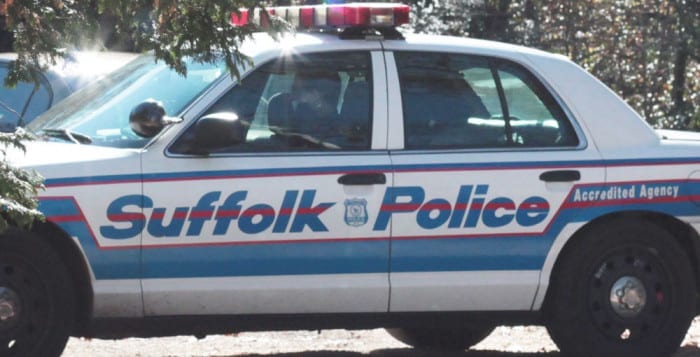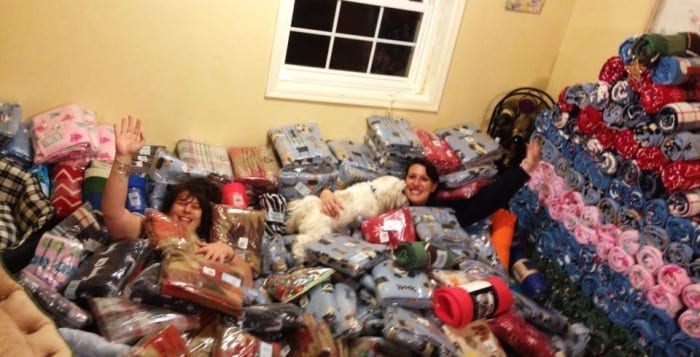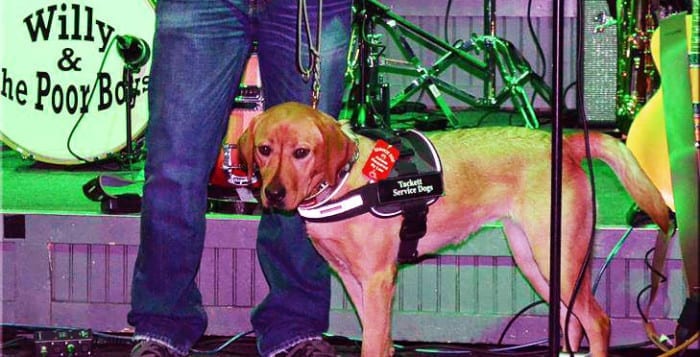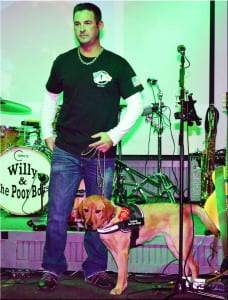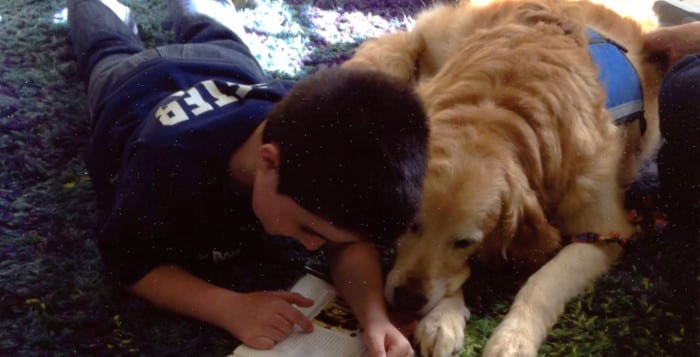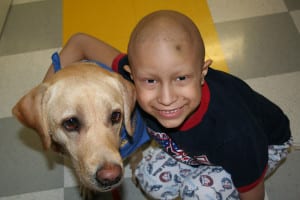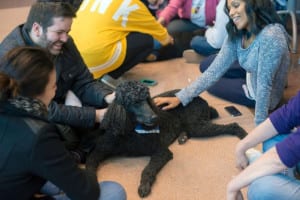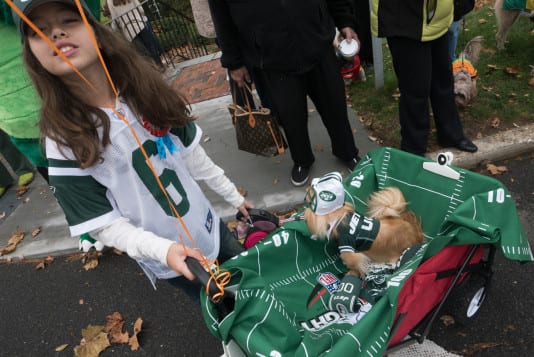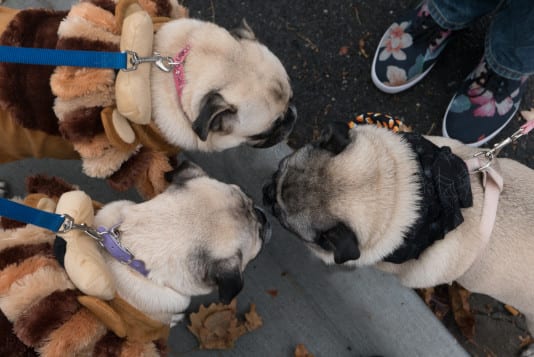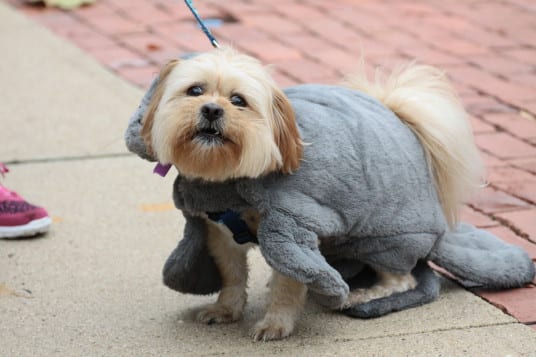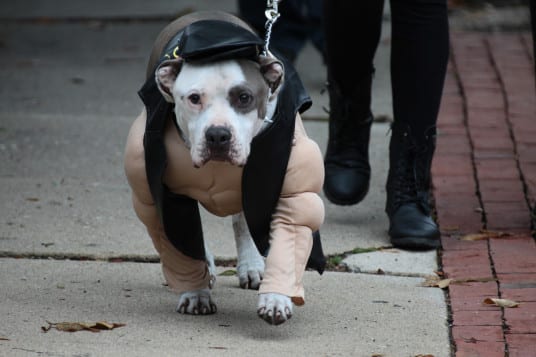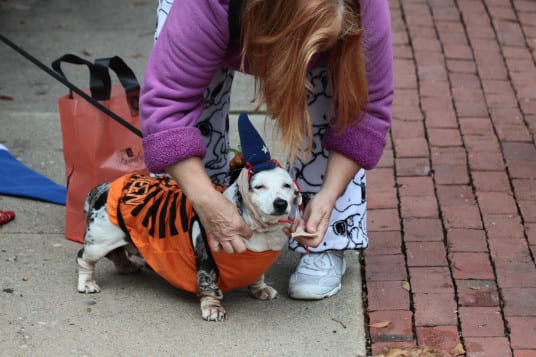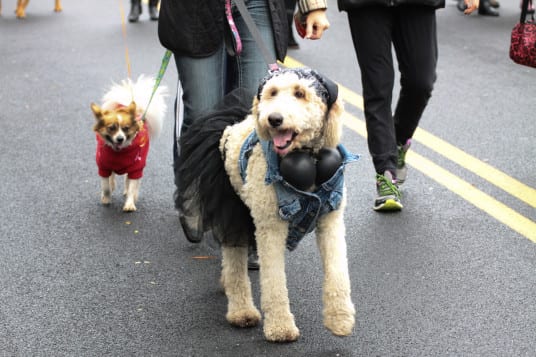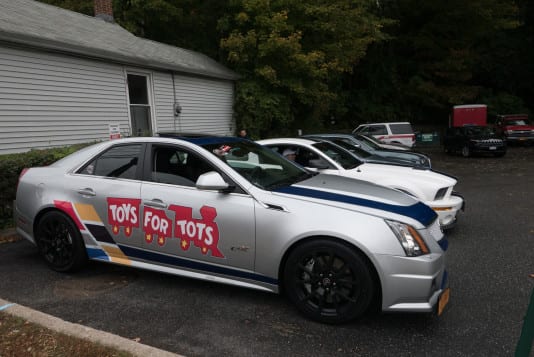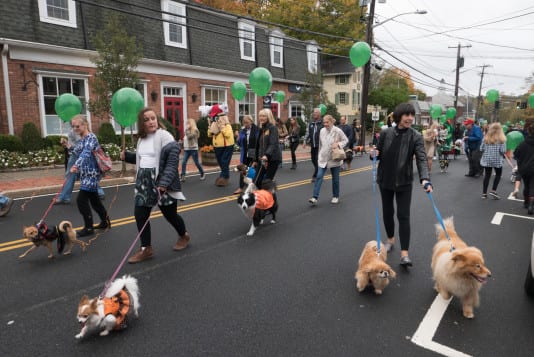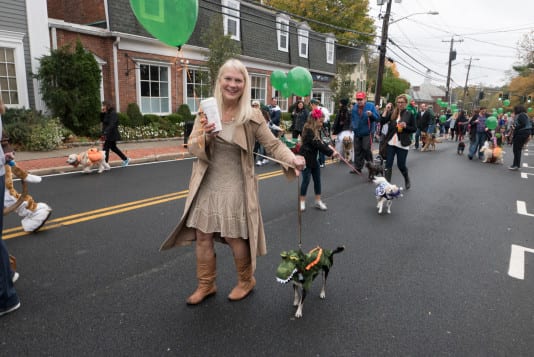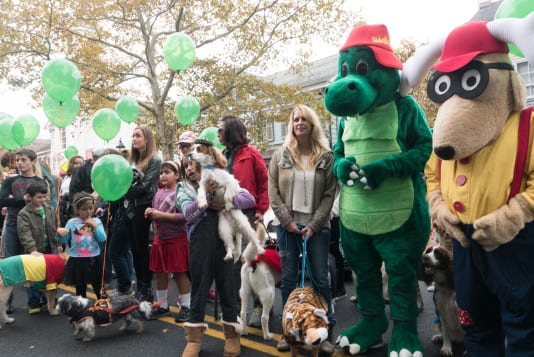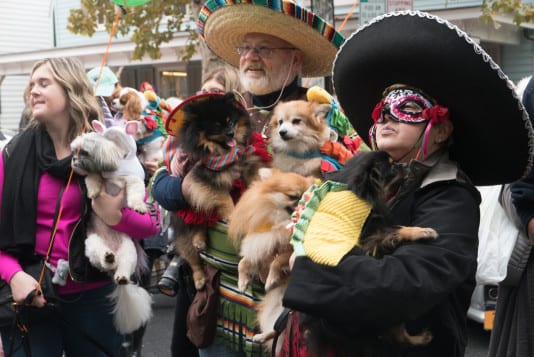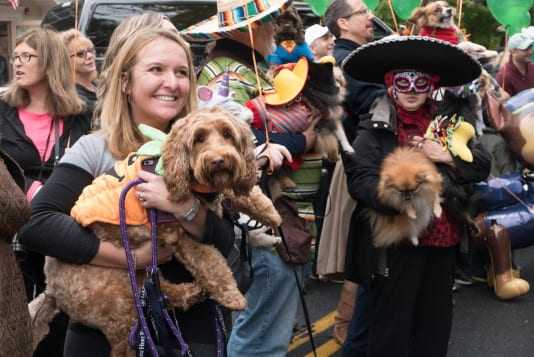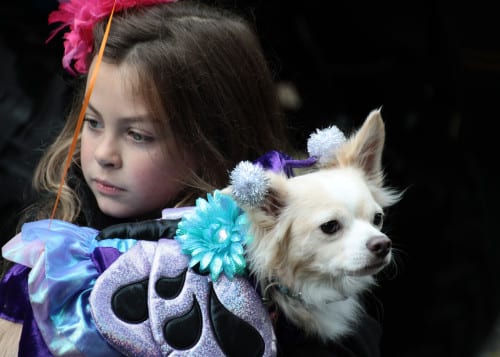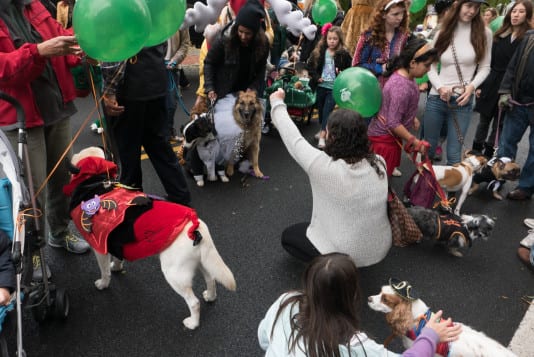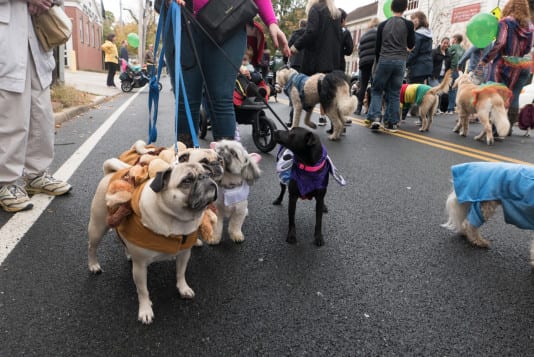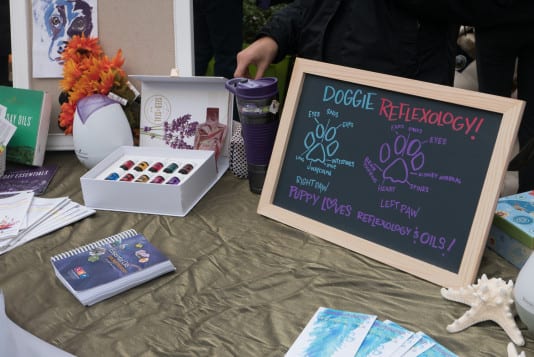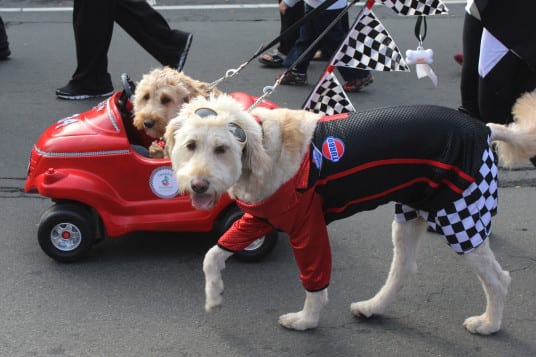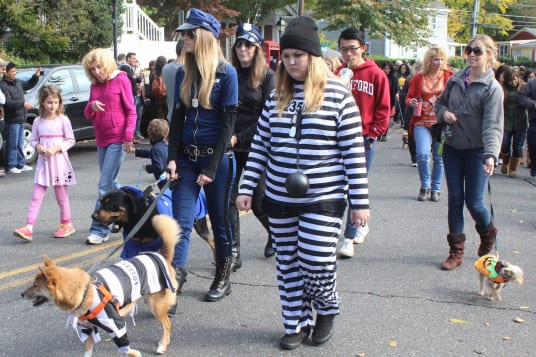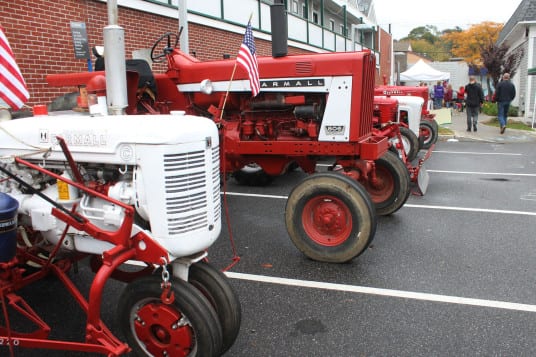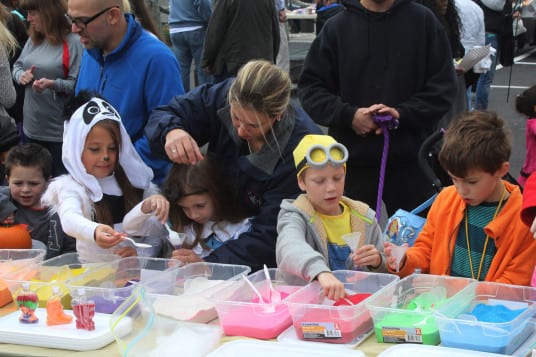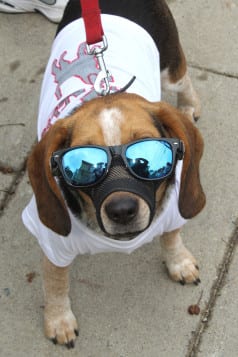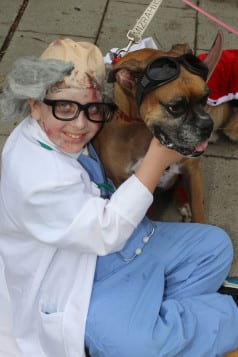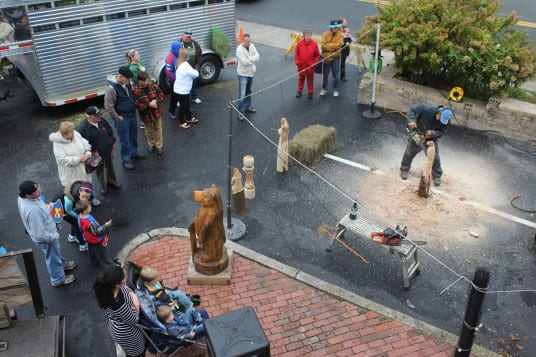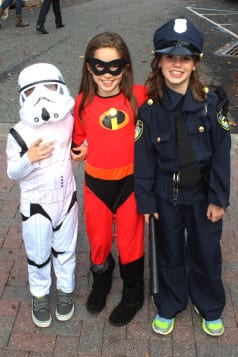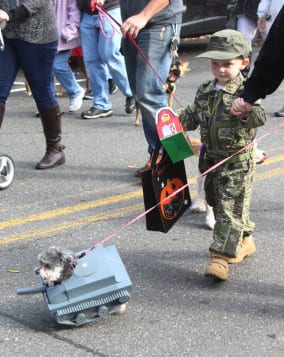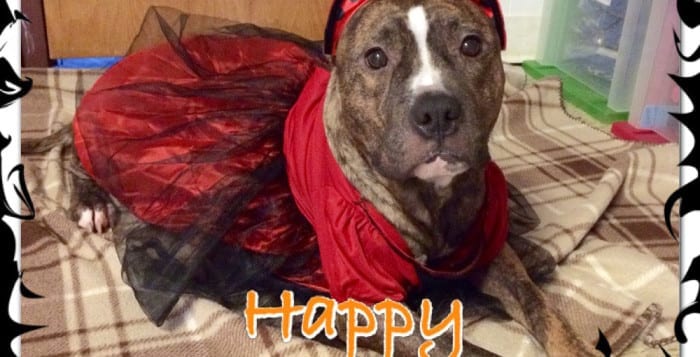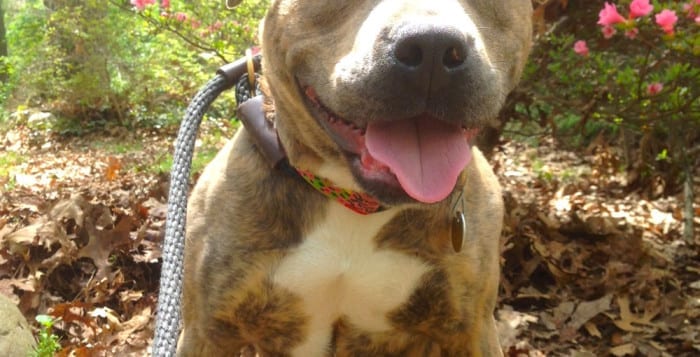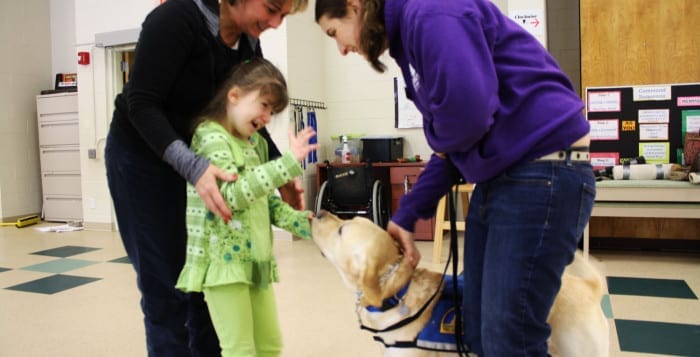DogFest Walk ‘n Roll Long Island takes place on Sat.
They say dog is man’s best friend, and for one Northport family, the adage couldn’t be any truer.
The DeStefanos are on a quest to raise money this week for Canine Companions for Independence’s DogFest Walk ‘n Roll fundraising event. The nonprofit group matches assistance dogs to children and adults with disabilities at no cost to the individual.
It was through CCI that Northport 9-year-old Giavanna DeStefano, who is disabled, met Harry, a golden Labrador, in February. And life has changed significantly for the DeStefanos since he joined their family, according to Giavanna’s mom, Cynthia DeStefano.
“Harry cleans her room for her,” DeStefano said in a phone interview on Tuesday. “For me, I should say. She likes having him around. It’s like her little buddy that’s there for her.”
Harry is Giavanna’s friend and helper. The girl, who was born with a genetic anomaly called Trisomy 9 Mosaicism syndrome, is nonverbal and has global developmental delays and balances issues. For instance, if someone were to bump into her, she would fall and wouldn’t know to brace herself to cushion the fall. She can only speak about seven words.
The dog is trained in more than 40 commands, and can do things like open and close doors, turn light switches on and off, and pick up dropped items for Giavanna, according to John Bentzinger, public relations spokesperson for the group.
“But his main job will be to give her constant companionship, and he is a social bridge to her peers,” Bentzinger said in an email.
The dogs go through a rigorous training process. It costs about $45,000 to train each of the dogs, and it’s through the DogFest Walk ‘n Roll that CCI helps raise money to fund some of those expenses, Bentzinger said. Last year, the group raised more than $40,000, and this year, they are aiming for $60,000.
There’s a waiting list of about a year and a half for one dog. CCI owns 53 dogs in the northeast region, and the nonprofit owns more than 500 dogs nationally.
Harry is Giavanna’s companion. The two-year-old lab sleeps with her at night. When Giavanna returns home from school, Harry gets antsy awaiting her arrival, when he hears the bus. He picks up her stuffed animal toys around the room. He swims in the family’s shallow pool with her. He attends doctors appointments with her.
When his vest is on, Harry is ready to go to work, Giavanna’s mom said.
“He’s helpful for her,” she said. “He’s very funny.”
Through Harry, Giavanna is gaining a greater sense of responsibility. Giavanna helps her mother groom and feed him, take him for walks. Having Harry by Giavanna’s side makes her more approachable and gives her more attention, which she likes, her mom said.
“They see him, they see her, and it softens the whole ‘what’s wrong with this situation’ kind of thing,” she said.
Experiencing life with Harry motivated the DeStefanos to give back by fundraising for CCI, Cynthia DeStefano said.
“It’s a great organization,” she said. “Going through the program was amazing, and to see what these dogs can do, and how they adapt to each person’s needs, is an amazing thing. We’re blessed to have been able to do this.”
So far, they’ve raised $185 out of their $300 goal. To donate to the DeStefanos’ team, go to their fundraising page at www.tinyurl.com/nn3sn4y.
The fundraiser DogFest Walk ‘n Roll Long Island takes place this Saturday, Oct. 3, at Marjorie Post Park in Massapequa. For more information, visit www.cci.org.

